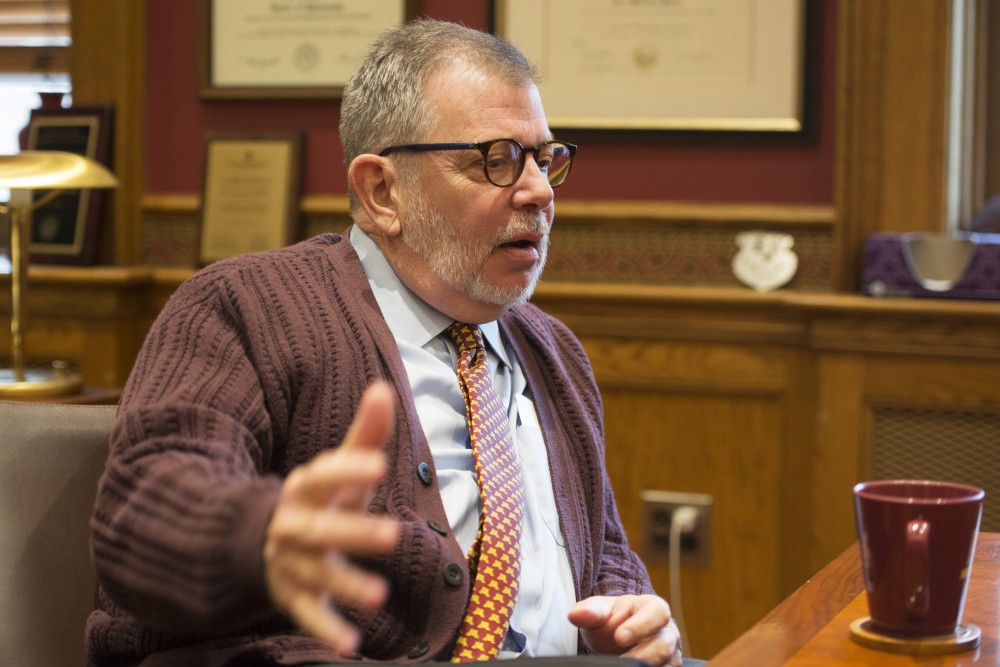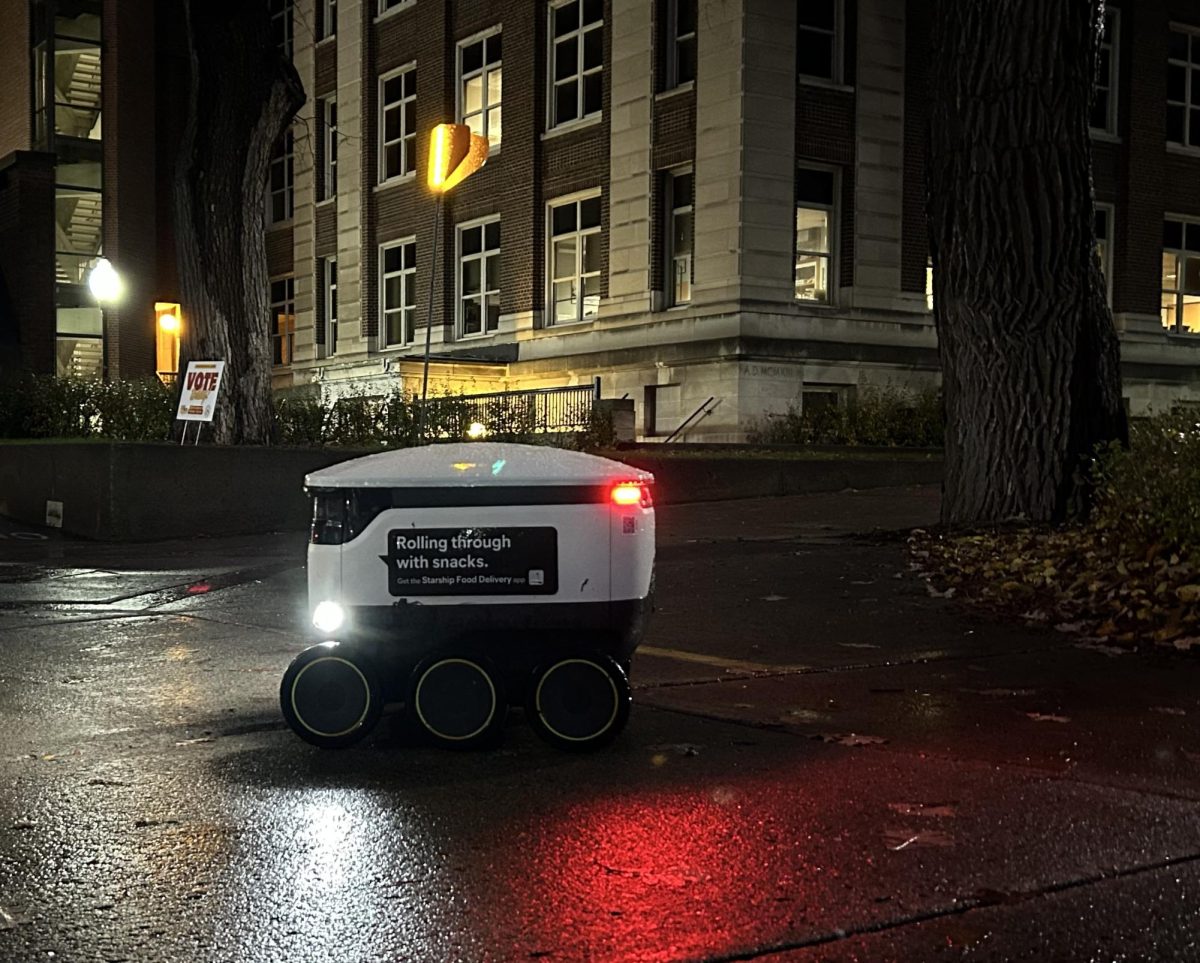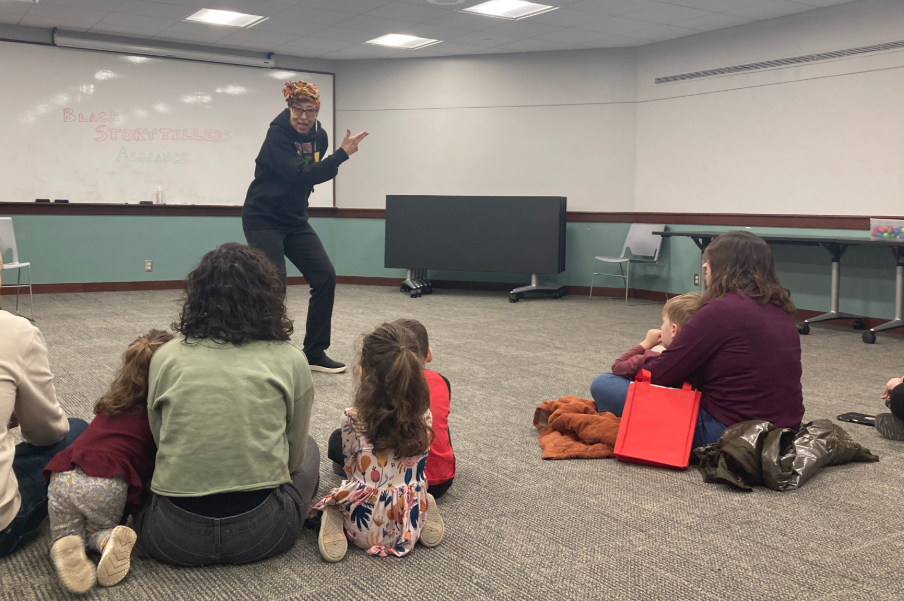The Minnesota Daily sat down with University of Minnesota President Eric Kaler earlier this week to talk about the recent death of a student, the future of the Child Development Center and the search for the next executive vice president and provost.
How’s the school year going? Anything special about your last first day of school?
… The fun thing about the final year of anything is that you get a whole lot of “last firsts,” and that was our “last first” convocation and our “last first” helping people move in. So I’ve had a good run as president and I’m enjoying reflecting on those past firsts and enjoying the other ones as they come along.
Two weeks ago you sent a letter to Greek life leaders following the death of Dylan Fulton calling for a safety review and committee and additional education. Can you provide more information on what that will look like?
We’re looking to the Office of Student Affairs to develop the programming that will guide that. But the letter and the other activities are as clear of a sign that I can send that this kind of behavior is unacceptable. The human tragedy of a death of a child is unbelievable and incredibly painful to a family. And the personal tragedy is something that we just have to create structures to prevent and that’s what we’re setting up to do.
Late last month Chinese billionaire Richard Liu was arrested for alleged sexual assault of a University student. Is the University investigating? If so, what does that timeline look like?
We are aware of the situation from the news media, but both people involved are students and of course student privacy laws prevent me from saying very much more about it at all.
The University is currently in the beginning stages of drafting its state budget request — how will the University effectively communicate its goals and funding needs with the state Legislature?
We will do what we always do, which is identify areas of particular interest of individual legislatures and help them become more informed about them so they can advocate for them. We will use our external constituencies, our alumni and other influencers who believe in the value of the University to communicate. And of course our government affairs people and administrators will be telling our story. But the best people to be telling our story are our students, so we will continue to ramp up the engagement of student voices in that communication.
Are you satisfied with the future of the Child Development Center?
I think we are now on a right path — we clearly didn’t manage that transition very well. We’ve recovered from that and we have a plan that makes very good sense for the Lab school and the Child Development Center. We will be involving additional parties so that we can grow the scope of our childcare availability and we will also be looking at the cost structures so that people who can afford to pay for childcare are doing so and those who are going to need some help will have some structures in place to help them.
A policy on preferred pronouns and names has been in progress since spring, why has there been such a long delay on taking action on the policy?
Well, in any of these policy processes, your number one goal is to get it right and so we issued a draft policy in the springtime … There was a bit of, I would say, overreaction to some of the language in the policy, but now that language has been modified … That all takes time, specifically in an academic setting where the summertime is devoted to scholarship and education and not particularly developing policy and so you expect a little lag, but it’s moving, I think, appropriately through the channels.
Ideas for the St. Paul Strategic Facilities Plan were discussed at the September Board of Regents meeting. What are your thoughts on the ideas discussed?
I think they point the way to a couple of things that are important. One is using the campus spaces in a more intensive way and improving the quality of what’s available there in terms of infrastructure. And it also enables, potentially, the development of some public-private partnerships that would leverage University resources and provide better bang for our buck, so to speak.
Recently, you named Michael Goh as the University’s Vice President for Equity and Diversity, what does he bring to the table?
Michael brings the full suite of skills that are needed in that space. He has a deep academic understanding of the subjects. He has a wonderful personal manner that allows him to work well with others. And he has a passion for the work. So he really does bring the skills, the background and the passion to be excellent as the leader of our equity and diversity efforts across campus.
The search firm, Storbeck/Pimentel and Associates have been involved in two failed local searches, why was this firm chosen to lead the presidential search?
All of our presidential search activities are really under the purview of the Board of Regents, so [I] didn’t have a voice in that choice.
Over the next year, the University community will gain a new president and executive vice president and provost. How will the transitions in new leadership be carried out effectively?
… I plan to appoint an interim provost that will span the two presidencies and provide continuity there … There will be a strong [group] of people in leadership positions and they will welcome the new president and help him or her get off to a new start … One of the president’s first jobs will be to search for a new provost who compliments his or her strengths and brings a strong academic voice to the University.








